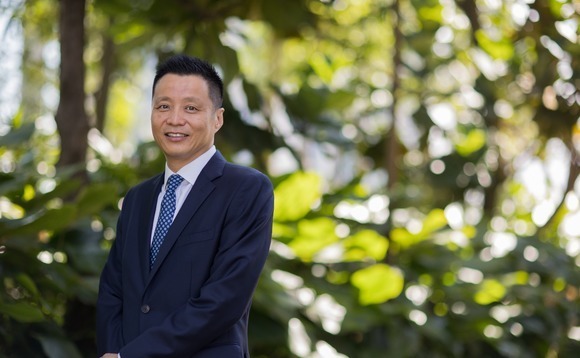
Fund focus: Tower goes large with debut fund

Tower Capital Asia is repositioning itself as a large, globally connected PE firm as it transitions from deal-by-deal investing to a fund structure. Deep roots in Singapore remain the nucleus of the strategy
Singapore's Tower Capital Asia had seen significant success working on a deal-by-deal basis, so LPs were not expecting meaningful change in strategy or structure when the firm launched its debut blind pool fund in 2020. But internally, it was accepted that reforms were required.
Building for longevity and sustainability became the name of the game, with a particular emphasis on talent. During the fundraising process, Tower built out its team from seven to 15, and another two professionals are expected to join within the year.
"In the fund-less sponsor model, we have to go back and forth with the respective LPs to justify our investment case, whereas with the fund model, the onus is on the GP to put together a robust investment process, which we did," said Danny Koh (pictured), who founded the firm in 2016.
Tower Capital PE Fund I closed on USD 379m, beating a USD 300m target, with USD 324m in primary commitments and USD 55m in co-investment commitments. There are about 10 LPs in total, including some existing and new Asian family office relationships, as well as sovereign wealth funds, pension funds, endowments, and fund-of-funds representing the US and Europe.
The firm's total assets under management now amount to approximately USD 500m.
Investees will be category leaders, preferably longstanding, hard-to-access companies with enterprise valuations of up to USD 350m. Targeting will continue to focus strongly on Singapore but only where diversification is achieved through regional business activity.
Much of the logic in this approach was made apparent by COVID-19. Geographic diversification proved a must as differing pandemic policies across the region created country-by-country challenges. Meanwhile, digital upgrades are now considered essential, and Singapore is the only sufficiently deep market for tech talent and resources in ASEAN.
Internationalisation was also on the agenda in the teambuilding process, with Tower's three-person investment committee (IC) expanding to five, including two external members. Separately, regional PE veteran John Thomson, one of Koh's former colleagues at 3i Asia, was appointed as a Scotland-based senior advisor and sounding board.
"We don't want to be a local shop – we want to introduce a certain level of inconvenience to the system. If you have a local IC, you tend to rely on a certain level of familiarity," Koh said. "That can be good and not-so-good because there can be a level of presumption, where certain blind spots will not surface."
The fund will invest in 6-7 companies. About 40% of the capital has been deployed to date across three deals: education players I Can Read Asia and Indigo Education, and corporate services provider Boardroom. The latter was carved out from Singapore-listed GK Goh Holdings last year at a valuation of SGD 312m (USD 231m) alongside Temasek Holdings-linked 65 Equity Partners.
Koh describes Boardroom as a template for future deal activity. The Singapore-headquartered business is geographically diversified with 50% of operations in Australia, 30% in Malaysia, 15% in Singapore, and 5% in Hong Kong and Macau. It's large, represents category leadership, and leveraged co-investment.
Indeed, Tower's next likely deal will be another corporate carve-out, probably closing in November and taking the fund drawdown to 60%. It is a Singapore-based company with most of its business in the city-state, but bolt-ons have already been identified to internationalise operations. Within a year, Singapore is expected to represent only about half of the business.
Strategic support notwithstanding, Tower prides itself on its patient and diplomatic deal sourcing, which is said to give it access to otherwise standoffish family businesses. Relationship building and negotiations are years-long processes.
The standout examples of this activity historically are the SGD 269m delisting of traditional Chinese medicine brand Eu Yan Sang in 2016 – also alongside Temasek – and the SGD 276m take-private of logistics provider Poh Tiong Choon in 2017.
"We have built a brand that is trusted to be a good steward of companies, and that goes a long way. I suspect that may be the secret sauce, but having said that, a certain level of effort must be put in as well," Koh added, flagging regional difficulties around acquiring control of longstanding businesses.
"Flexibility is a function of whether there is underlying alignment. If we think the counterparty is one where we have very strong alignment – not just operationally but emotionally – it doesn't matter much whether it's a control or minority deal. Even in a control deal, if we don't sense that alignment, we may in fact turn away."
Latest News
Asian GPs slow implementation of ESG policies - survey
Asia-based private equity firms are assigning more dedicated resources to environment, social, and governance (ESG) programmes, but policy changes have slowed in the past 12 months, in part due to concerns raised internally and by LPs, according to a...
Singapore fintech start-up LXA gets $10m seed round
New Enterprise Associates (NEA) has led a USD 10m seed round for Singapore’s LXA, a financial technology start-up launched by a former Asia senior executive at The Blackstone Group.
India's InCred announces $60m round, claims unicorn status
Indian non-bank lender InCred Financial Services said it has received INR 5bn (USD 60m) at a valuation of at least USD 1bn from unnamed investors including “a global private equity fund.”
Insight leads $50m round for Australia's Roller
Insight Partners has led a USD 50m round for Australia’s Roller, a venue management software provider specializing in family fun parks.







